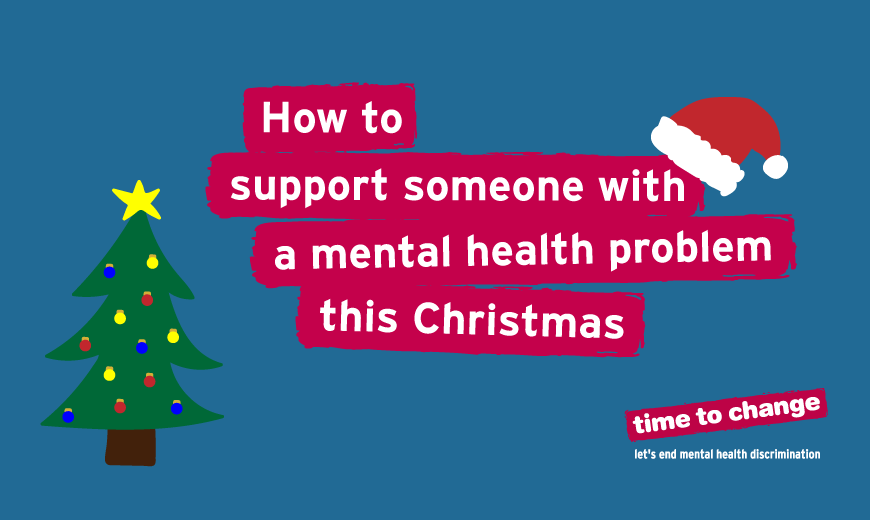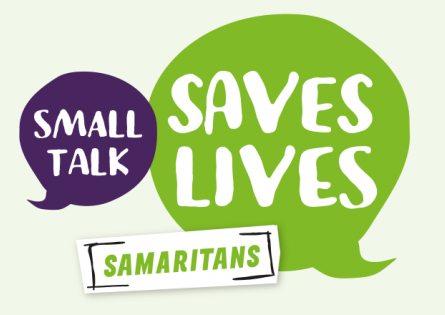Latest News
Managing Mental Health at Christmas
Posted on Friday, 18th December 2020

Christmas is meant to be a time for celebration and joy, but for many people, the festive period can be extremely difficult.
Feelings of depression, anxiety, and isolation are common at this time of year, especially for those who are living alone or away from their family. With the Coronavirus preventing many people from seeing their loved ones this Christmas, it’s more important than ever to practice good self-care.
In today’s blog, we look at some of the signs of mental health problems, and how you can look after your mental wellbeing this Christmas.
How do you explain what mental health is?
Mental health refers to our emotional and psychological wellbeing. Having good mental health is essential to fully functioning in our social, family, and working lives.
The best way to think of mental health is to compare it to physical health. We all have physical health and have to look after it to avoid becoming ill. Mental health is just the same. Failing to address mental health issues can make things even worse, stopping the individual from functioning properly and handling the ups and downs of life.
Poor mental health can even affect physical wellbeing. Mental illness can lead to individuals struggling for energy, over or under eating, and becoming sick as a result. In more serious cases, this can even lead to substance abuse, self-harm, and suicide.
How does Christmas affect mental health?
Christmas can be a difficult time for many people. Society puts a lot of pressure on people over the festive period to have a ‘perfect Christmas’, and to be happy. This just isn’t possible for everyone. At a time of year when everyone is meant to be celebrating, those who are dealing with negative emotions can find themselves increasingly isolated, making their pre-existing issues even worse.
While many of us enjoy spending time with family over the festive period, many people don’t have any close family, or come from unhappy homes. This can lead to them becoming seriously isolated and lonely. Even those who do have close family may struggle with these commitments due to depression, anxiety, or may have experienced trauma related to the festive season.
Christmas can also be very challenging for people coping with addictions. The amount of alcohol and food that is available and relentlessly advertised during the festive season can be problematic for those with alcohol addiction or eating disorders. They may find themselves acting on their addictions as a coping mechanism to deal with the stresses brought on by the holidays.
How can I manage my mental health at Christmas?
The first step to being able to effectively manage your mental health at Christmas is to identify what aspect is causing you to worry or stress. For example:
- Are you anxious about being with family?
- Do you find the preparations stressful?
- Are you feeling lonely as you don’t have any want to speak to?
Identifying to root of your concern will help in trying to find a solution to your problems. If you are struggling to put your finger on the specific cause, it’s always best to talk it over with someone.
It's important to look out for each other at this time of year, and look out for the mental health of others as well as ourselves. To help support someone with mental health problems over Christmas, you can visit the Time to Change website for some useful advice. For tips on how to handle specific mental health issues around Christmas, you can visit the Heads Together website.
What are the 5 signs of mental illness?
People react differently to mental health problems depending on their circumstance, their personality, and the specifics of the issues they’re suffering. However, there are five key signs to look out for in yourself and others, which may flag up potential mental health issues:
- Excessive worry, anxiety, or paranoia
- Long-lasting sadness or irritability
- Extreme mood swings
- Withdrawal from social life
- Substantial changes to sleeping or eating patterns (this can be sleeping or eating too much, or too little)
If you are displaying one or more of these behaviours, talk to someone. Talking to a health professional is always the best way to address any mental health issues, but talking openly and honestly to someone you trust (usually friends or family) can make a huge difference. It’s important to remember you are never alone, even when you feel like you are.
Coronavirus and Mental Health
This Christmas presents a unique set of challenges due to the impact of the coronavirus. Most areas of the country will face tight restrictions over the festive period, meaning it may not be possible to spend time with friends and family like you normally would this time of year. These restrictions can cause a great deal of loneliness for some people. This, combined with the worries about health and finances brought on by the virus, will mean this Christmas will be even tougher than usual for most of us.
To help protect your mental health over Christmas and during the winter months, the Mental Health Foundation have provided 10 quick tips you can try to implement if you are struggling:
1.  Reach out for help as early as possible - especially with things like debt or finances, or with your mental health.
Reach out for help as early as possible - especially with things like debt or finances, or with your mental health.
2. Have a routine and set short-term goals - planning for today, tomorrow, the next week, in order to keep on top of things.
3. Build in more breaks and exercise into your schedule - exercise and time in nature can be of huge benefit to our mental health.
4. Look at your sleeping habits - sleep is essential to operating to the best of our abilities, both physically and mentally.
5. Find the positives from lockdown - reflect on anything you've achieved this year, or maybe look into starting something new, like volunteering or online classes.
6. Plan your finances this winter - avoid financial stress by planning out your spending for the months ahead. This is particularly important over Christmas to ensure you don't buy more than you can afford and end up in overwhelming debt.
7. Stay connected - keep in touch with friends, family and work colleagues online or over the phone if you can't in person.
8. Find time for your needs - make sure you find time to look after yourself away from your work, family, and social commitments.
9. Make friends with cold, dark days - find hobbies and interests which you can do indoors, such as reading and cooking.
10. Give yourself a reward - celebrate and reward yourself for accomplishing tasks throughout the day, no matter how small they might be.
If you want to know more about how to cope with mental health implications of the Covid-19 pandemic, why not read our previous blog 'Mental Health During the Coronavirus Crisis'.
Who can I talk to?
If you are feeling alone and need someone to speak to over Christmas, Samaritans are one of the best services to contact.
 Samaritans are open 24/7, every day of the year, including Christmas day. You can speak to one of their helpful volunteers about any issue you are experiencing, no matter how big or small. They offer a kind and non-judgmental ear to those who feel they have no one to talk to. All conversations are completely confidential and anonymous, workers only ever intervene if someone’s life is in immediate danger. You can also speak to them through their webchat service if you would prefer not to speak over the phone.
Samaritans are open 24/7, every day of the year, including Christmas day. You can speak to one of their helpful volunteers about any issue you are experiencing, no matter how big or small. They offer a kind and non-judgmental ear to those who feel they have no one to talk to. All conversations are completely confidential and anonymous, workers only ever intervene if someone’s life is in immediate danger. You can also speak to them through their webchat service if you would prefer not to speak over the phone.
There are many other charities you can contact depending on the specific mental health issues you are facing. You can use this NHS guide to find a mental health charity that can provide the best support for you. In an emergency, you can contact a NHS mental helpline to get an immediate response from a medical professional.
Mental Health Courses with ESS:
Mental health is an issue all year round. If you want to learn about how you can effectively identify and help those suffering from mental illness, we provide a range of courses which can help establish good mental health practise at your workplace.
- Mental Health First Aid
- Mental Health Awareness (e-learning)
- Mental Health First Aid Champion
- Adult Mental Health Awareness
Further information:
If you want to know more about how Christmas can be a challenging time for mental health, visit Mind’s guide to ‘Christmas and Mental Health.’
To see a full list of the courses we provide, head over to our online course index. If you want to find out more about our training, contact the ESS team directly on 0115 8970 529. You can also email us at info@essentialsiteskills.com


